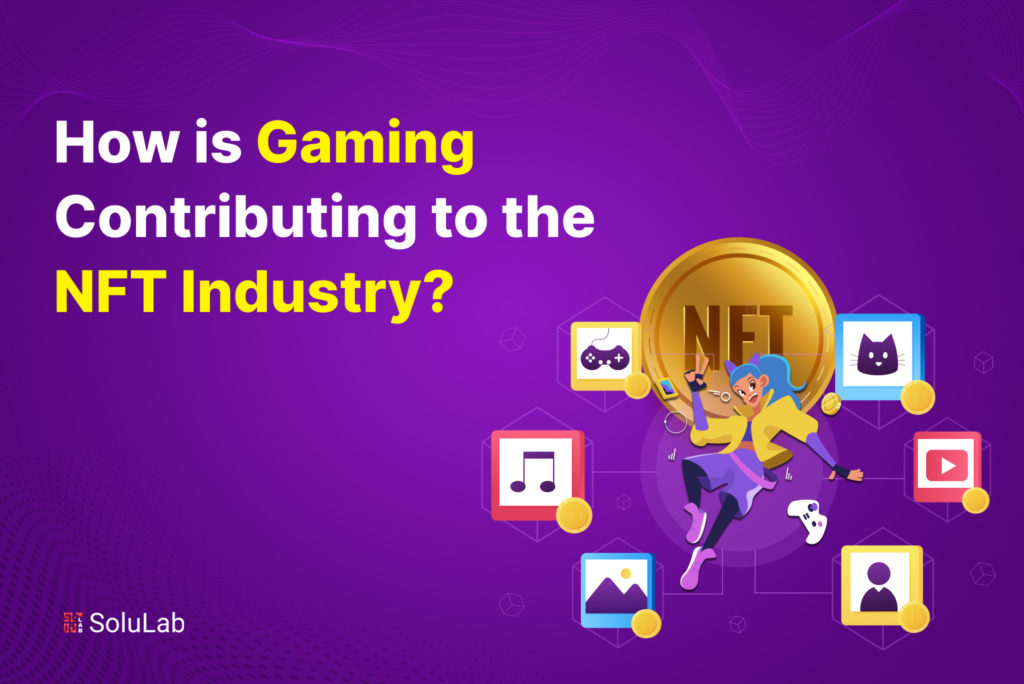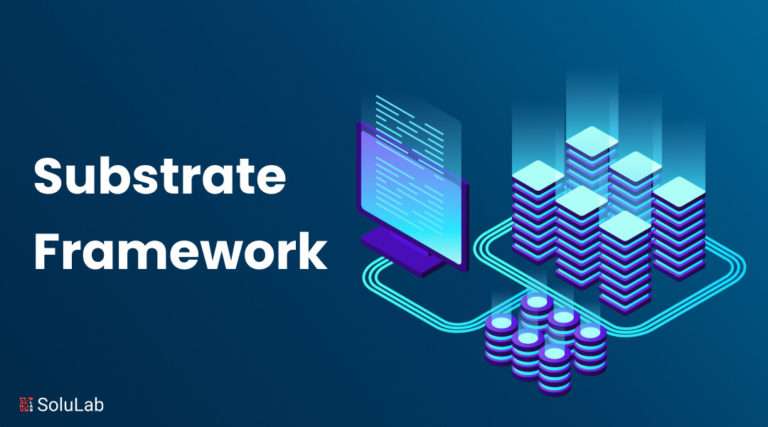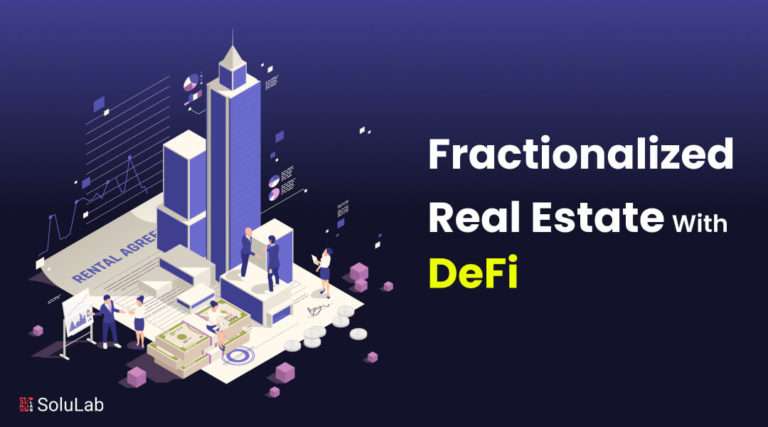
The gaming industry has long been a pioneer in pushing technological boundaries and immersing players in captivating virtual universes. In recent years, it has also emerged as a powerful catalyst for the Non-Fungible Token (NFT) revolution. This intersection often referred to as “gaming NFT” or “NFT gaming,” has given rise to groundbreaking innovations that are redefining how we perceive and interact with digital assets.
NFTs, or Non-Fungible Tokens, have transcended their origins as digital collectibles to disrupt various sectors, from art and music to real estate and sports. These unique digital assets have unlocked new possibilities for ownership, provenance, and value exchange. Understanding the widespread impact of NFTs across different domains is crucial to appreciating their significance in gaming.
In a rapidly evolving digital landscape, the worlds of gaming and NFTs have collided, creating a dynamic synergy that is reshaping industries and capturing the imagination of enthusiasts and entrepreneurs alike. This blog will delve into this exciting intersection, exploring the profound influence of gaming on the NFT industry.
Why is it Crucial to Understand How Gaming and NFTs Interact?

In the ever-evolving landscape of digital innovation, the intersection of gaming and NFTs (Non-Fungible Tokens) has emerged as a phenomenon that cannot be overlooked. Understanding the dynamic relationship between gaming and NFTs is not just beneficial; it is crucial for a multitude of reasons. Let’s delve into why it is so essential to grasp how gaming and NFTs interact.
-
Pioneering Innovation in Digital Ownership
The fusion of gaming and NFTs has ushered in a new era of digital ownership. Gamers can now truly own in-game assets, characters, and virtual items as NFTs. This innovation challenges traditional notions of ownership in the digital realm, making it imperative to understand how this transformation affects both gamers and the NFT industry.
-
Shaping the NFT Industry’s Trajectory
Gaming’s influence on the NFT industry has been instrumental in shaping its trajectory. The gaming community’s active participation and adoption of NFTs have accelerated the industry’s growth. By understanding this relationship, one gains insights into the driving forces behind the NFT market’s expansion.
Read Also: Best Play To Earn NFT Games In 2023
-
NFT Solutions for the Gaming Ecosystem
NFTs offer unique solutions to long-standing challenges within the gaming ecosystem. These solutions include secure asset ownership, cross-platform compatibility, and enhanced player experiences. Recognizing the potential of NFTs in addressing these issues is vital for game developers and enthusiasts alike.
-
NFT Marketplaces as Key Enablers
NFT marketplaces play a central role in the gaming-NFT fusion. Gamers and collectors use these platforms to trade and acquire valuable NFTs. Understanding the mechanics of NFT marketplaces is crucial for those seeking to navigate this exciting space effectively.
-
Talent Acquisition and Collaboration
As the demand for NFT-related projects in the gaming industry grows, the ability to hire the best NFT developers becomes paramount. Understanding the skill sets required and the intricacies of NFT development is essential for businesses aiming to thrive in this evolving landscape.
What Are NFTs (Non-Fungible Tokens), and How Do They Differ From Cryptocurrencies?
In the ever-evolving landscape of digital assets and blockchain technology, NFTs, or Non-Fungible Tokens, have emerged as a groundbreaking concept. They are revolutionizing various industries, including gaming, by redefining how we perceive and interact with digital assets. To fully grasp the significance of NFTs, it’s essential to understand what they are and how they differ from traditional cryptocurrencies.
NFTs: Uniqueness and Individuality
At their core, NFTs are unique digital assets. Each NFT represents ownership of a specific item, character, artwork, or any other digital or physical object. The key characteristics that set NFTs apart from cryptocurrencies like Bitcoin or Ethereum are as follows:
-
Uniqueness
Every NFT is one-of-a-kind, with distinct attributes that differentiate it from other tokens. In the gaming context, each in-game item, character skin, or virtual object can be tokenized as an NFT, and no two NFTs are identical.
-
Indivisibility
NFTs are indivisible, meaning they cannot be divided into smaller units. Unlike cryptocurrencies that can be broken down into fractions, NFTs exist as whole entities.
Read Our Blog: What are NFT Games and How Do They Work?
-
Provenance
The ownership history of NFTs is recorded on a blockchain, providing a transparent and immutable ledger of ownership. This feature ensures that the true origin and ownership of an NFT can be easily traced.
-
Interoperability
NFTs can be used across various platforms and applications, enabling seamless transfer and use. This interoperability is particularly valuable in the gaming industry, where in-game assets can be bought, sold, and used in different games or virtual worlds.
NFTs in the Gaming Industry
The gaming industry has embraced NFTs as a transformative technology. Gamers are accustomed to owning and trading in-game assets, such as skins, weapons, and characters. NFTs enable gamers to have true ownership of these virtual items by representing them as unique tokens on a blockchain. This integration has several implications:
-
Ownership and Scarcity
Gamers can truly own their in-game assets as NFTs, giving them a sense of rarity and exclusivity. This ownership can extend beyond a specific game, allowing gamers to trade or use their NFTs in different gaming environments.
-
Player-driven Economies
NFTs empower players to participate in player-driven economies, where the value of in-game items is determined by supply and demand. This can lead to new gaming experiences and opportunities for players to monetize their gaming activities.
Check Our Blog Post: How to Make an NFT Game?
-
NFT Marketplaces
NFT marketplaces cater to gamers, offering platforms to buy, sell, and trade gaming-related NFTs. These marketplaces provide a bridge between the gaming and NFT communities, facilitating the exchange of digital assets.
What is the Emergence of NFTs in Video Games?
In recent years, the convergence of gaming and NFTs (Non-Fungible Tokens) has created a fascinating synergy within the broader blockchain landscape. As the gaming industry continues to evolve, NFTs have emerged as a revolutionary force, providing unique solutions and opportunities for gamers, developers, and collectors alike. This article delves into the remarkable journey of how gaming has embraced NFTs and transformed the landscape of interactive entertainment.
NFTs and Gaming: A Perfect Match
The term “NFT gaming” has become synonymous with innovation in the gaming industry. NFTs are digital assets that are indivisible, verifiable, and irreplaceable, making them a natural fit for gaming. Here’s how gaming and NFTs have come together:
Ownership and Scarcity: In the digital realm, true ownership of in-game assets was a challenge until NFTs came along. NFTs enable players to have provable ownership of unique in-game items, characters, and skins. This has revolutionized the concept of digital scarcity.
-
Player Empowerment
NFTs empower players by allowing them to trade, sell, or showcase their in-game assets outside of the gaming environment. This has led to the rise of a player-driven virtual economy.
Read Our Blog Post: Top 9 Best NFT Games for Android
-
Play-to-earn
The concept of “play-to-earn” has gained traction, where players can earn NFT-based rewards for their in-game achievements. This has transformed gaming from a mere pastime into a potential source of income.
NFTs in Gaming: Key Milestones
The integration of NFTs into video games didn’t happen overnight. It evolved through several key milestones:
-
Blockchain Integration
Early experiments focused on integrating blockchain technology into gaming, setting the stage for NFTs. This laid the foundation for secure asset ownership.
-
CryptoKitties (2017)
CryptoKitties, a blockchain-based game, allows players to collect, breed, and trade digital cats as NFTs. This marked the dawn of NFTs in gaming.
-
Decentraland (2017)
Decentraland introduced the concept of virtual real estate, where NFTs represent parcels of land in a virtual world. This showcased the potential of NFTs beyond traditional gaming.
-
Axie Infinity (2018)
Axie Infinity popularized the “play-to-earn” model, where players could earn NFT-based rewards through gameplay. It ignited widespread interest in blockchain gaming.
Examples of Video Games Utilizing NFTs

Today, numerous video games actively incorporate NFTs into their gameplay and economies:
-
Sorare
This fantasy football game employs NFTs to represent official digital player cards, allowing players to collect, trade, and compete in virtual football leagues.
-
The Sandbox
A user-generated content platform where NFTs enable players to create, own, and monetize their gaming experiences, including virtual assets.
-
Lost Relics
An action-adventure RPG that employs NFTs to represent unique in-game items and gear, creating a vibrant player-driven marketplace.
Read Our Blog: How to Create an NFT Game: A Step-by-Step Guide
-
Gods Unchained
A digital trading card game where each card is an NFT. Players can own, trade, and use these cards in competitive battles.
-
Axie Infinity
Continues to thrive, with NFT-based creatures, land, and items forming the core of its ecosystem, offering players the potential for substantial earnings.
How Does Tokenization of Virtual Items, Characters, and Skins Work in NFT Gaming?
Tokenization is the process of converting in-game assets, characters, and skins into NFTs, and it’s a game-changer in the gaming industry. But how does this process work?
-
Item Tokenization
Game developers can assign a unique NFT to each in-game item. This means that when a player acquires an item, they receive a corresponding NFT representing that item. This NFT can be transferred, sold, or traded, giving the player full ownership rights.
-
Character and Skin Tokenization
Similarly, characters and skins can also be tokenized. When a player unlocks or purchases a character or skin, they receive an NFT that represents it. This NFT can be personalized and used across different games or even sold to other players.
What Are the Advantages of Using NFTs in the Gaming Industry?

The adoption of NFTs in the gaming industry offers a multitude of advantages, reshaping the way we play and engage with virtual worlds. But what are these advantages?
-
Ownership and Interoperability
NFTs provide players with true ownership of in-game assets, characters, and skins, giving them the freedom to use, sell, or trade them across different games and platforms.
-
Monetization
Gamers can now earn real-world value through their in-game achievements. “Play-to-earn” models, enabled by NFTs, allow players to monetize their skills and investments in virtual assets.
Check Our Blog Post: Top 10 Defi NFT Games to Look for in 2023
-
Community Engagement
NFTs foster vibrant player communities. Gamers can connect on NFT marketplaces, discuss strategies, and trade assets, enhancing the social aspect of gaming.
-
Developer Creativity
Game developers have more creative freedom, as they can design unique, limited-edition NFTs that drive engagement and excitement among players.
-
Long-Term Value
NFTs can appreciate in value over time, making them both enjoyable in the short term and potentially profitable in the long run.
What Does the Gaming Industry’s NFT Game Development Services Entail?

In the ever-evolving landscape of the gaming industry, the emergence of NFTs (Non-Fungible Tokens) has opened up exciting new possibilities. NFTs have transcended their origins as digital collectibles and are now seamlessly integrated into video games, transforming the way players engage with in-game assets and economies. SoluLab, as a prominent player in the field, offers comprehensive NFT game development services that encapsulate a wide array of crucial elements.
-
Conceptualization and Ideation
At the core of SoluLab’s NFT game development services is the process of conceptualization and ideation. Collaborating closely with game developers and studios, SoluLab helps in brainstorming and formulating innovative concepts for NFT-based game mechanics and assets. This initial phase lays the foundation for creating a unique and engaging gaming experience that leverages the power of NFTs.
Read Our Blog: Top NFT Development Companies To Look At In 2023
-
Smart Contract Development
A pivotal aspect of NFT game development is the creation of blockchain-based smart contracts. SoluLab excels in developing these intricate pieces of code that underpin NFTs. These smart contracts tokenize in-game items, characters, skins, and other assets, transforming them into NFTs. These NFTs are then stored securely on a blockchain, ensuring immutable ownership and scarcity.
-
NFT Marketplace Integration
SoluLab specializes in building and integrating NFT marketplaces within games. These marketplaces serve as vibrant hubs where players can seamlessly buy, sell, and trade their NFT assets. The inclusion of such marketplaces not only enhances the player’s sense of ownership but also fosters dynamic in-game economies. SoluLab ensures that these marketplaces are user-friendly, secure, and scalable.
-
Interoperability
One of the key advantages of NFTs in gaming is their ability to function across different games and platforms. SoluLab ensures that NFTs developed for a specific game can be used flexibly, allowing players to enjoy cross-game interoperability. This feature enhances the overall gaming experience by giving players the freedom to utilize their NFT assets across various titles.
-
Security and Scalability
Security is paramount in NFT game development. SoluLab implements robust security measures to safeguard NFTs and blockchain infrastructure from potential threats. Additionally, scalability is a critical consideration, ensuring that the game can handle a growing player base and increased NFT transactions without compromising performance.
-
Player Engagement Features
SoluLab understands the importance of player engagement in the success of NFT-powered games. To enhance player engagement, SoluLab incorporates a variety of NFT-related features into the games. These may include NFT-based rewards, achievements, leaderboards, and other mechanics that incentivize player participation.
How Has Gaming Contributed to the Growth of the NFT Industry?

The fusion of gaming and NFTs (Non-Fungible Tokens) has given rise to a transformative synergy within the blockchain landscape, profoundly impacting both industries. The emergence of NFTs in gaming has not only enriched the gaming experience but has also propelled the NFT industry to new heights. Let’s explore how gaming has played a pivotal role in the remarkable growth of the NFT industry.
-
Pioneering Mass Adoption
Gaming has long been a fertile ground for experimentation with new technologies. When NFTs entered the gaming arena, they found a ready and enthusiastic audience. Gamers, accustomed to collecting virtual items and engaging in digital economies, quickly grasped the concept of NFTs. This led to mass adoption as gaming communities embraced NFTs as a natural extension of their virtual world interactions.
-
Fueling Economic Activity
The integration of NFTs has revolutionized in-game economies. Gaming enthusiasts are now actively participating in virtual marketplaces, buying, selling, and trading NFT-based assets such as skins, characters, and items. This economic activity injects significant value into the NFT ecosystem, contributing to its rapid growth.
Read Our Blog: All You Need to Know About NFTs
-
Inspiring Innovation
Gaming has been a hotbed of innovation when it comes to NFT use cases. Beyond traditional collectibles, game developers have explored unique applications for NFTs, such as:
-
Virtual Real Estate
Games like Decentraland and The Sandbox allow players to buy, own, and develop virtual land as NFTs, opening up a new dimension of ownership and creativity.
-
Play-to-Earn Models
Titles like Axie Infinity have popularized the “play-to-earn” model, where players can earn NFT-based rewards by engaging in gameplay. This innovation has sparked immense interest in blockchain gaming.
Read Also: Step-By-Step Guide For Developing NFT Marketplace
-
Cross-Game Compatibility
NFTs have enabled players to carry their virtual assets across different games, creating a seamless and personalized gaming experience.
-
Engaging the NFT Collector Community
Gaming’s dynamic NFT integration has not only attracted gamers but also collectors within the NFT community. NFT collectors recognize the value of in-game assets and unique digital items as collectibles. This convergence has created a dynamic synergy, with collectors seeking exclusive NFTs from their favorite games, driving demand and value.
-
Showcasing Collaborations
To further accelerate the growth of the NFT industry, games have begun collaborating with renowned NFT artists. These collaborations bridge the gap between gaming and the broader NFT ecosystem, fostering a sense of unity and mutual benefit.
Conclusion
In conclusion, the intersection of gaming and the NFT industry has created a fascinating synergy, revolutionizing how we perceive and interact with digital assets. As the demand for unique and tradable in-game items continues to grow, the incorporation of NFTs into the gaming ecosystem has not only breathed new life into the gaming industry but also paved the way for innovative NFT solutions for gaming.
The advent of video game NFTs has opened doors to entirely new revenue streams for developers and gamers alike. NFT game development services have emerged as a critical component, facilitating the creation of immersive and collectible gaming experiences that blur the lines between virtual and tangible assets. As NFT marketplaces expand and evolve, gaming enthusiasts can now buy, sell, and trade their prized in-game possessions with unprecedented security and authenticity.
SoluLab, a leading NFT gaming marketplace development company, has been at the forefront of this transformative journey, offering top-tier NFT game development services and connecting the gaming industry with the thriving NFT marketplace development. With the ability to hire the best NFT developers, SoluLab empowers gaming studios to harness the full potential of NFTs, creating a more engaging and rewarding gaming ecosystem.
FAQs
1. What is the connection between gaming and the NFT industry?
Gaming is significantly contributing to the NFT industry by integrating non-fungible tokens (NFTs) into video games. This trend, often referred to as “NFT gaming” or “gaming in the NFT industry,” has opened up new possibilities for gamers and NFT enthusiasts alike.
2. How are video game NFTs changing the gaming landscape?
Video game NFTs are altering the gaming landscape by allowing players to own, trade, and use in-game assets as NFTs. This introduces true ownership of in-game items, making gaming experiences more immersive and financially rewarding.
3. What are NFT solutions for the gaming industry?
NFT solutions for the gaming industry include the development of NFT marketplaces within games, allowing players to buy, sell, and trade in-game items as NFTs. Additionally, blockchain technology ensures transparency and security for these transactions.
4. How can I get involved in the NFT gaming space?
To get involved in the NFT gaming space, consider partnering with an NFT game marketplace development company or hiring the best NFT developers. They can help you create and integrate NFTs into your game, enhancing its value and appeal to players.
5. What is an NFT marketplace development, and why is it important for gaming?
NFT marketplace development refers to creating platforms where players can trade their in-game items as NFTs. This is crucial for gaming as it provides a secure and transparent environment for buying, selling, and showcasing virtual assets.
6. How do NFT game development services benefit the gaming industry?
NFT game development services benefit the gaming industry by enabling game developers to incorporate blockchain technology and NFTs into their projects. This enhances player engagement, encourages player-driven economies, and opens up new revenue streams.






